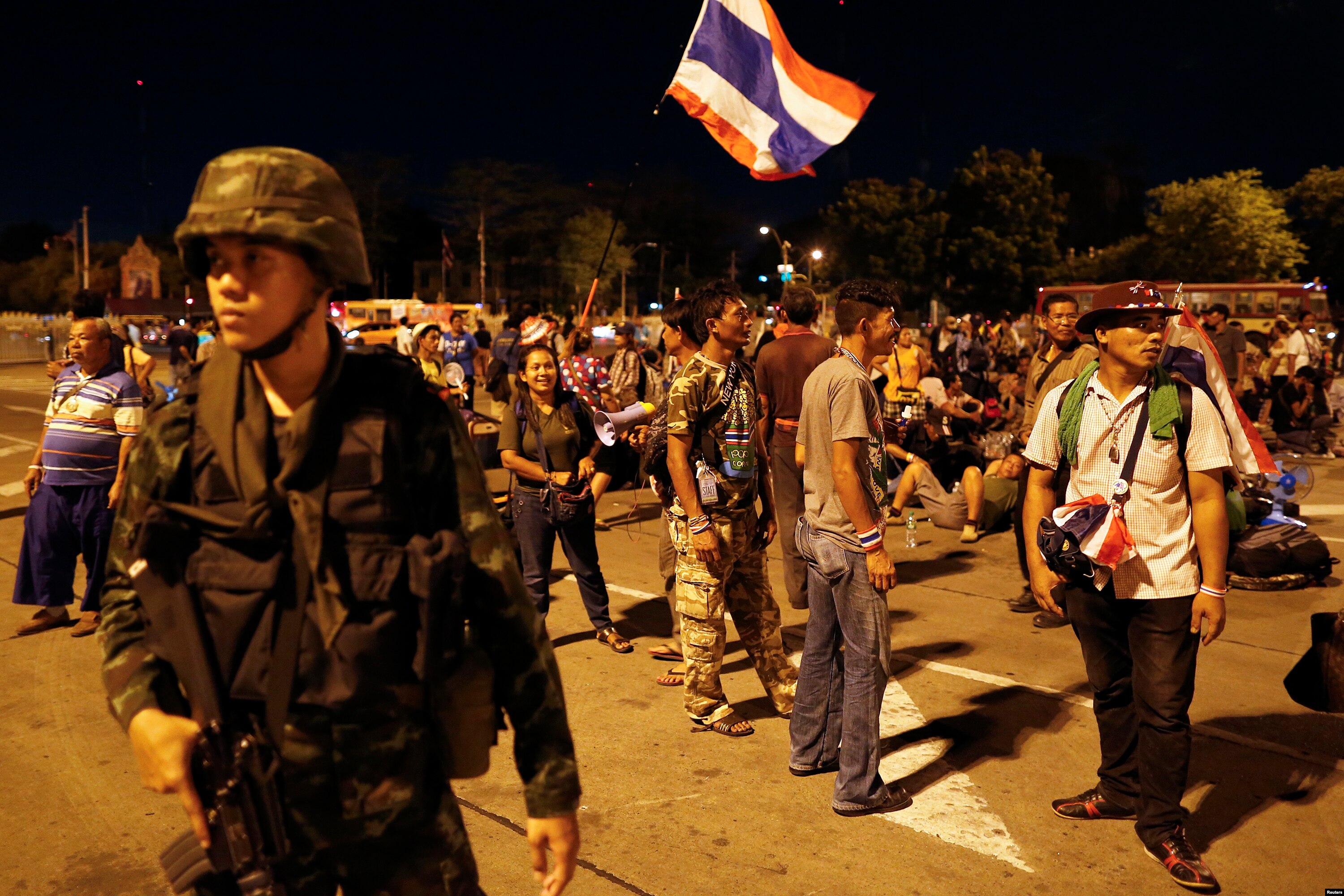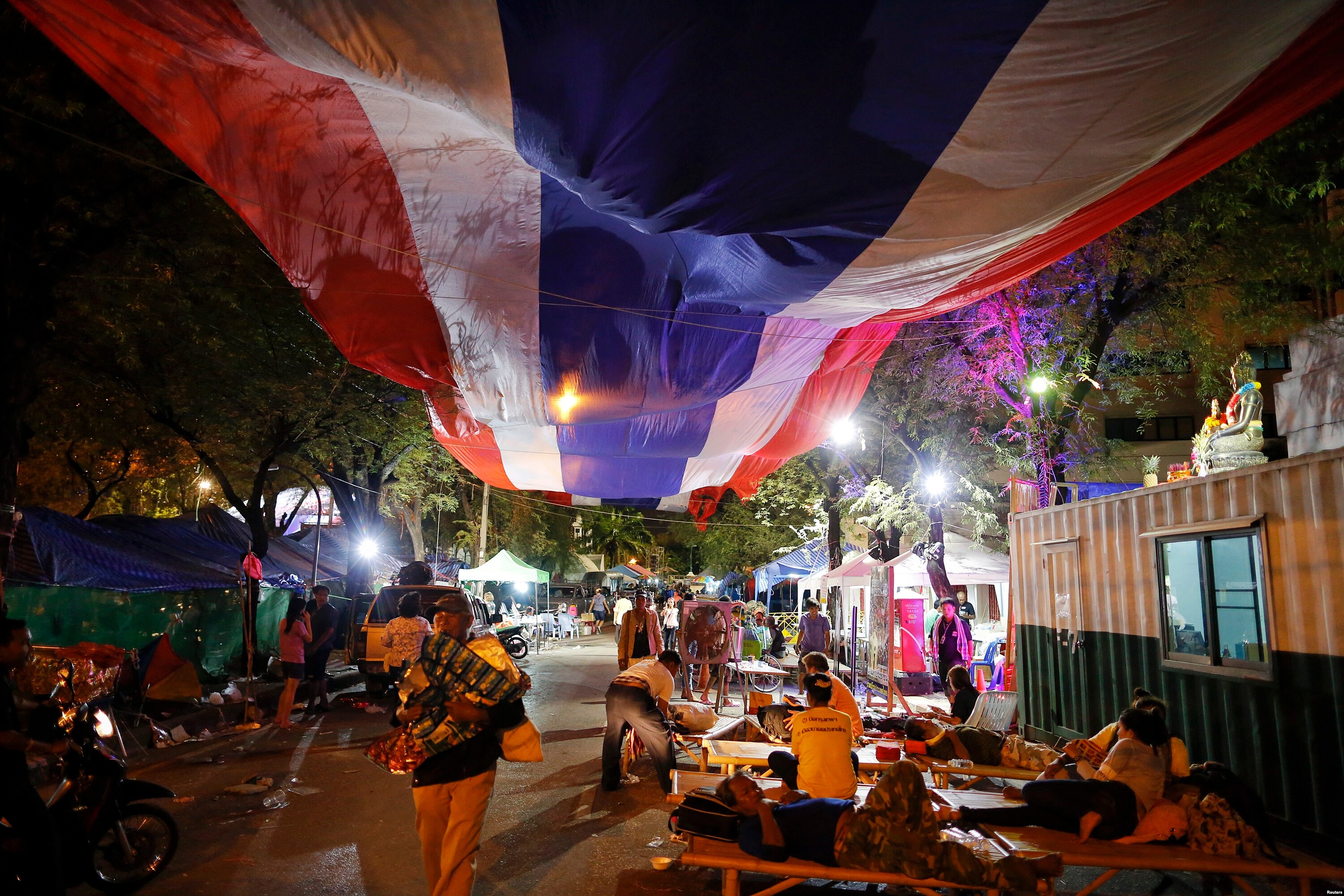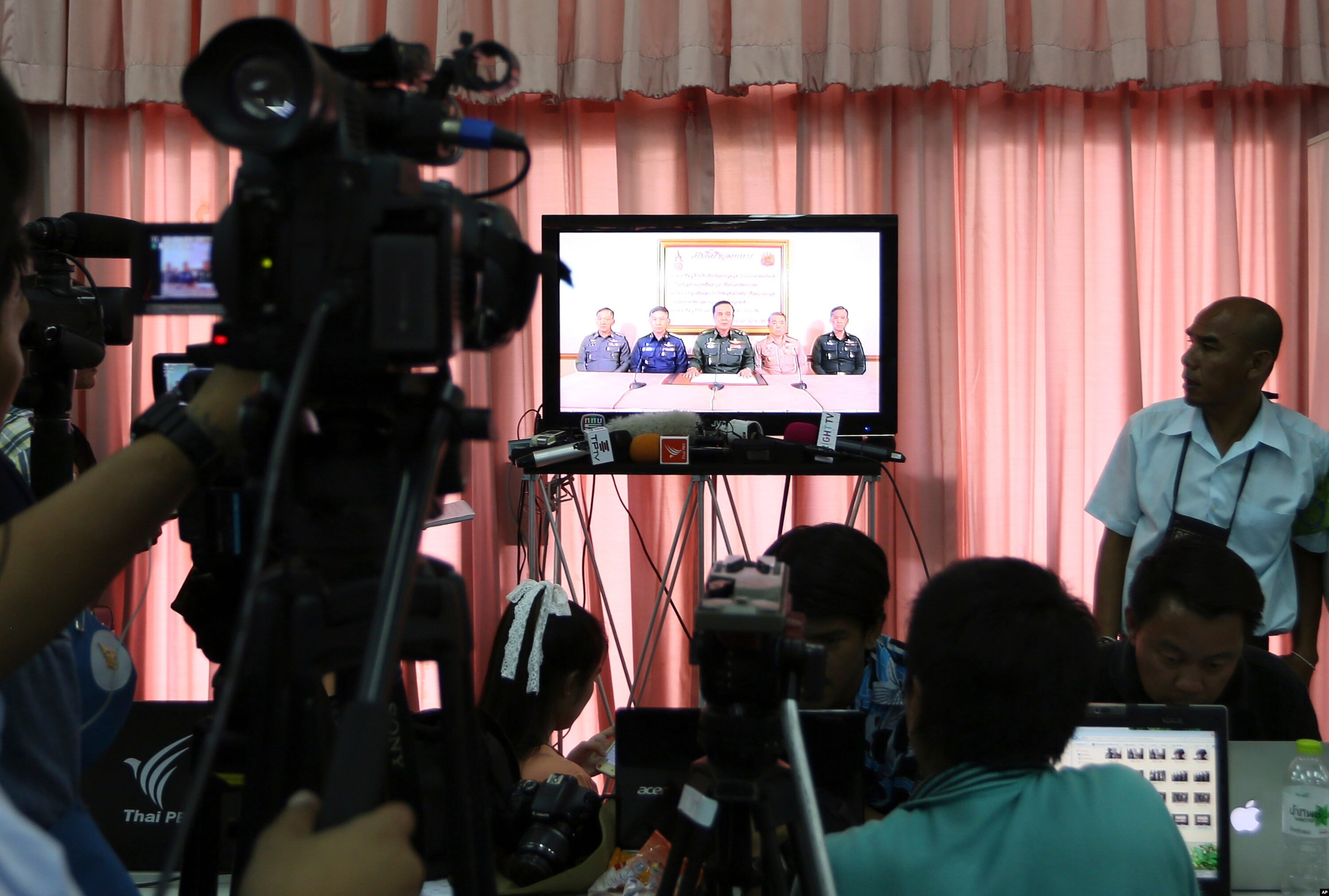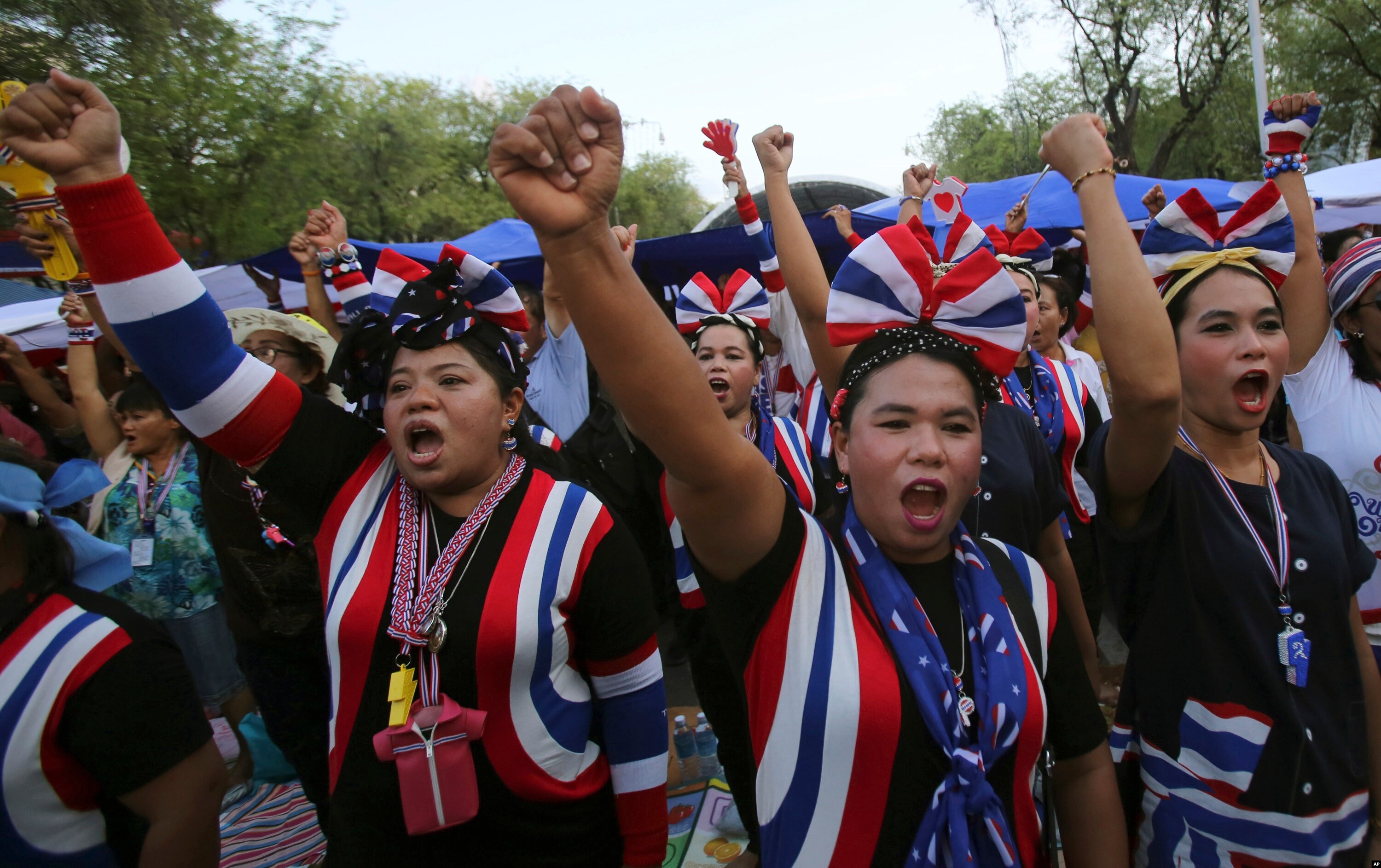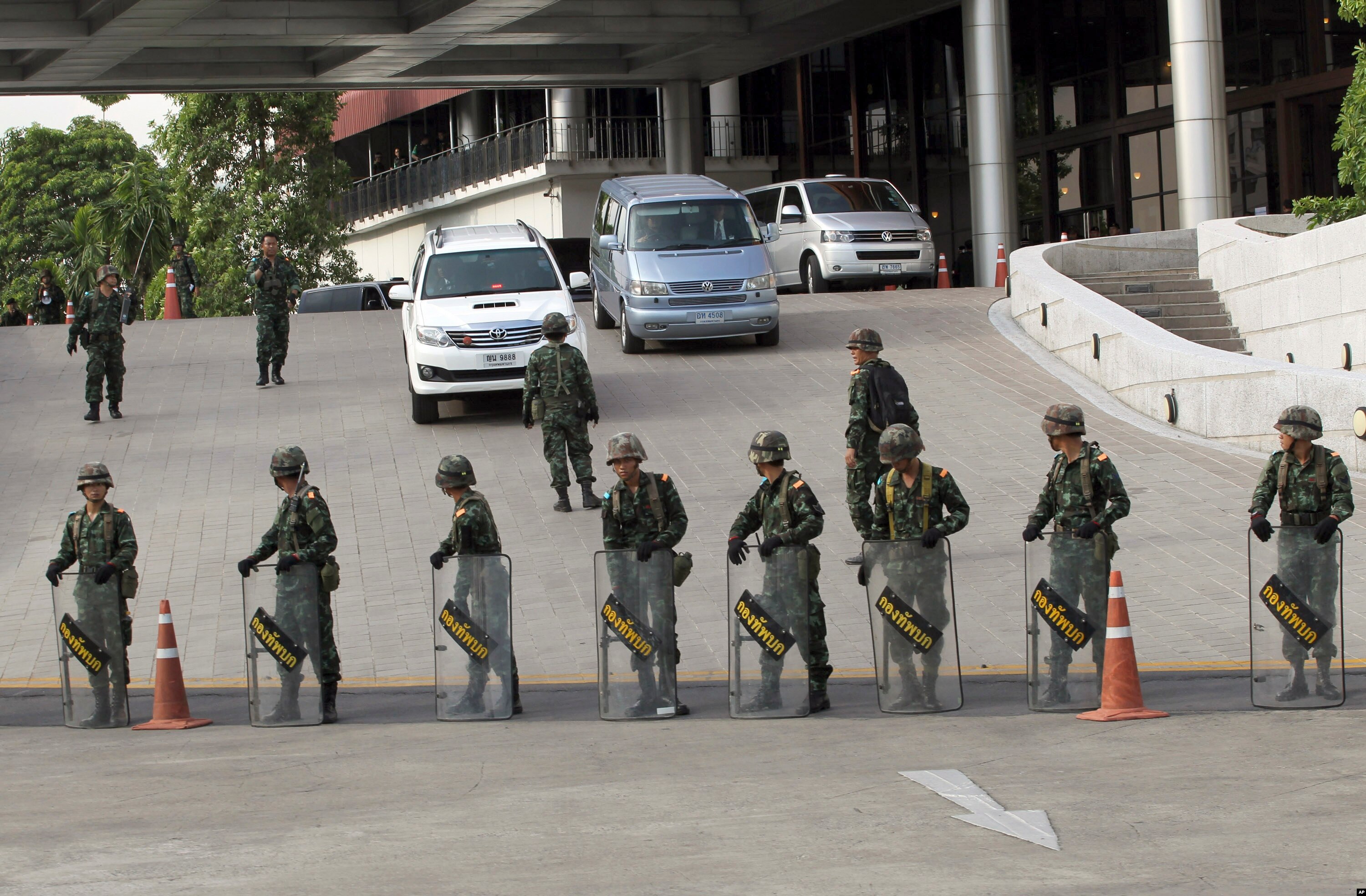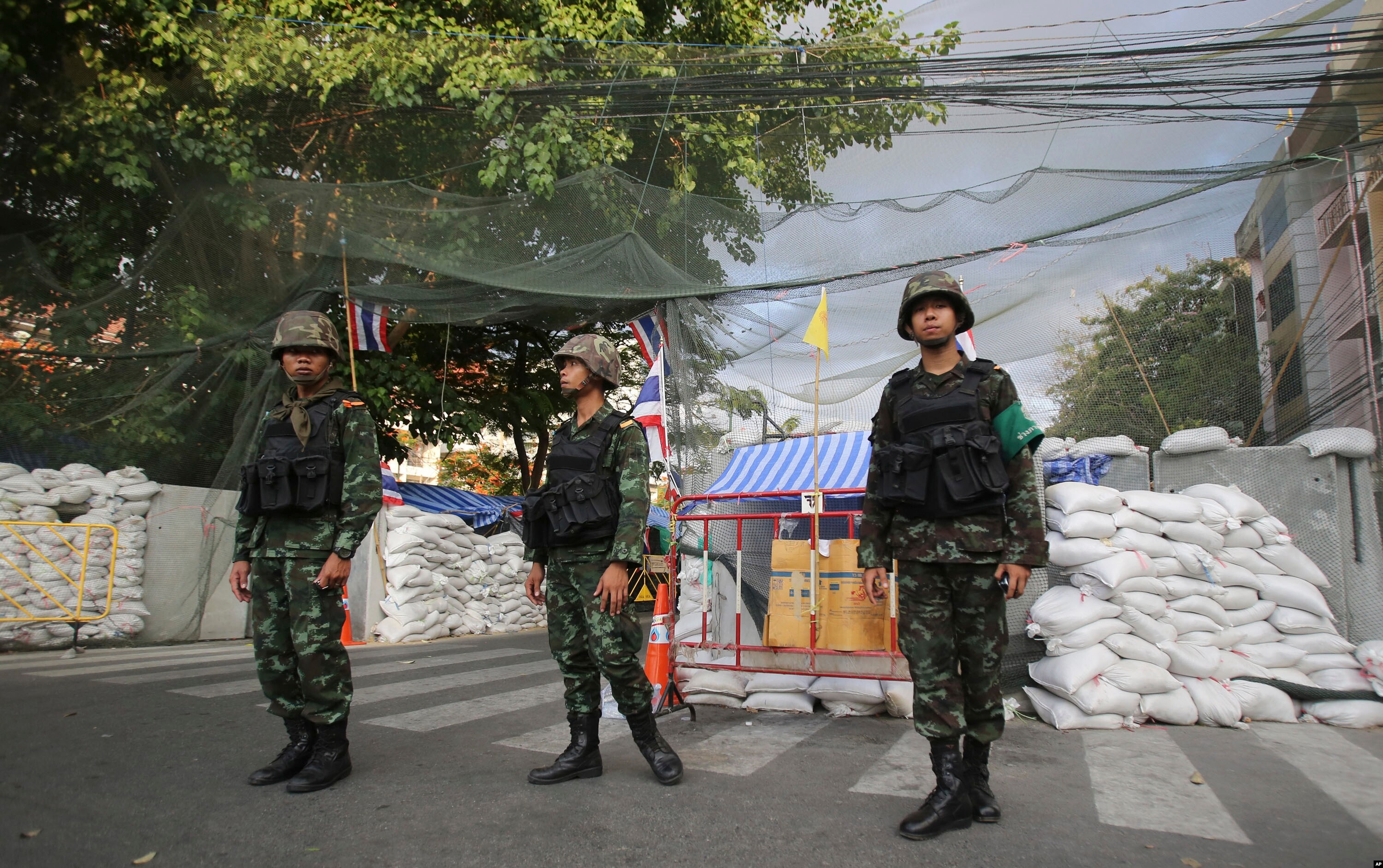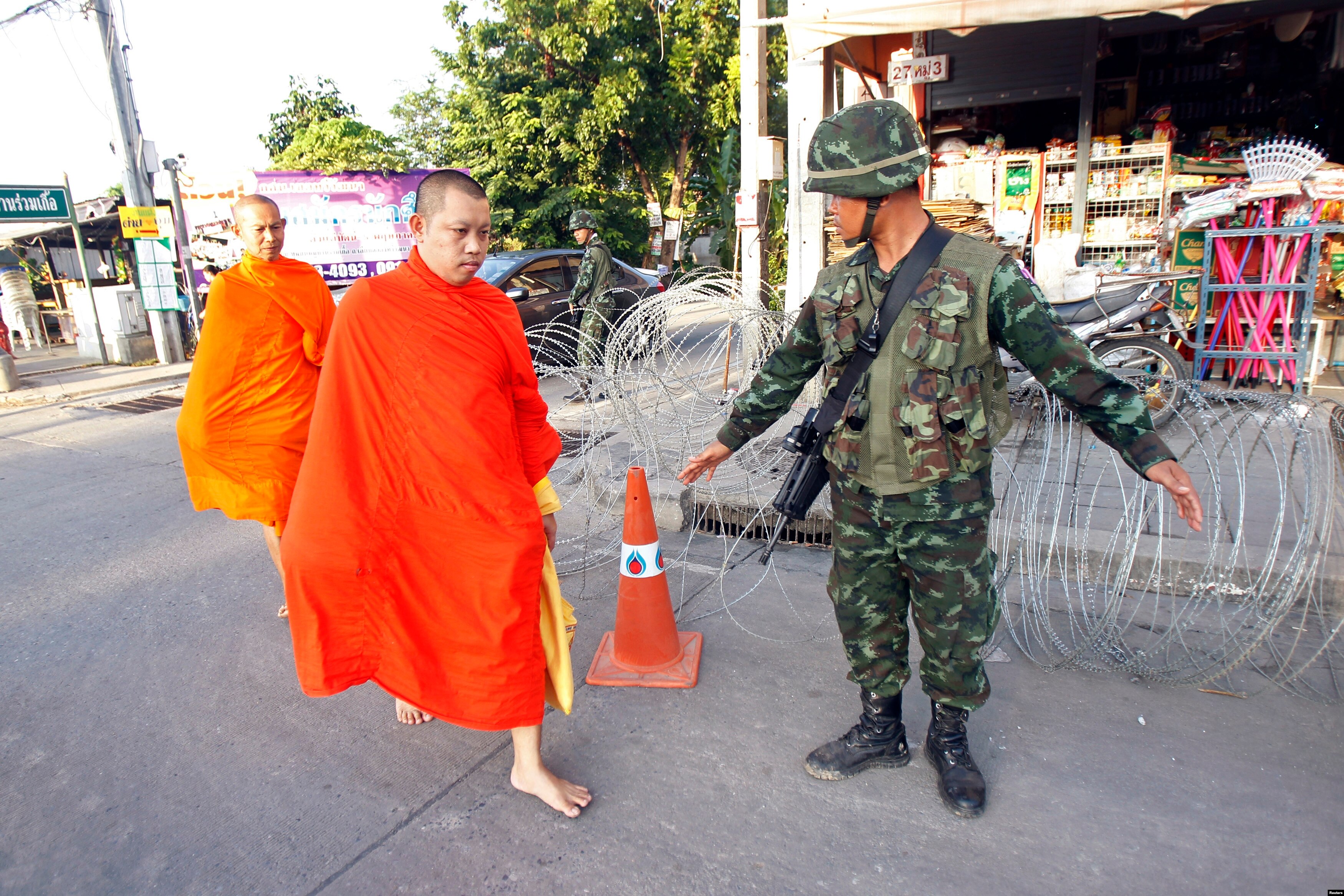Thailand's military coup leaders suspended the nation's constitution and ordered the country's acting prime minister and cabinet to report to the army on Thursday, two days after the army chief imposed martial law.
Thailand’s army chief, Gen. Prayuth Chan-Ocha, flanked by the heads of the armed forces, appeared on major television stations late Thursday afternoon and declared the military and police are now running the kingdom’s government.
Prayuth said it is necessary for the military and police to “take control of governing the country.” He said the army will restore order and push through political reform.
Hours later, the military had banned gatherings of more than five people, instituted a curfew from 10 p.m. to 5 a.m., summoned the ousted cabinet to report to the army and suspended the constitution -- except for the section related to the monarchy.
The statement followed a second day of crisis talks between rival political parties. Witnesses said the participants in the talks were taken away by soldiers after the talks failed to achieve a compromise between the opposition and supporters of ex-Prime Minister Thaksin Shinawatra.
Thailand’s interim prime minister, Niwattumrong Boonsongpaisan, was not among those attending the talks and his whereabouts are currently unknown.
Following the coup announcement, soldiers moved in to clear the two main protest sites where both pro- and anti-government demonstrators have held rallies in recent days.
Television programming disrupted
Thailand's army told all television and radio stations in the country to halt normal programs on Thursday and only broadcast army material shortly after it staged a coup, according to Reuters.
“All radio and television stations, satellite and cable, must stop normal programming and broadcast army content until told otherwise,” Winthai Suvaree, a deputy army spokesman, said in a televised statement.
Foreign broadcasters and Internet service appeared unaffected.
The pro-government Red Shirts, encamped just to the west of the capital, remained defiant despite the military announcement.
A Twitter message from the United Front for Democracy against Dictatorship (UDD) warned to “stand by for retaliation.”
An army spokesman said troops and vehicles were being sent to rally sites to escort protesters away.
On Thursday morning, representatives of the embattled caretaker government, the two major rival political parties and the election commissioner again met at the Army Club. They had been sent home after the first day with “homework,” according to the military, and told to return with proposals to end the country’s protracted political impasse.
After the group failed to reach an agreement, political leaders were taken into custody. Minutes later, the army chief appeared on television to announce the military takeover.
Acting prime minister not at meeting
Interim Prime Minister Niwattumrong was invited but did not attend. He sent one of his deputies, Pongthep Thepkanjana, saying to reporters he would not bow to pressure from the opposition to resign.
Just hours before the military takeover, Niwattumrong said martial law was helping to maintain law and order in the politically fractured country.
Anti-government demonstrators have rallied in Bangkok for six months. During that time, at least 28 people have died and more than 700 have been injured in violence connected to political protests.
The roots of the political standoff go back years.
On one side, royalists and allied groups sought to rid the country of the influence of billionaire Thaksin Shinawatra, whose parties and candidates have won every election since 2001.
Thaksin was ousted as prime minister in a 2006 military coup that sparked a major power struggle. Thaksin is in self-imposed exile facing prison for a corruption conviction, should he return home.
Under martial law, both pro- and anti-government demonstrators are not allowed to leave their designated protest sites.
The military also shut down several media outlets and warned against broadcasting news that will worsen tensions.
Thailand's army, which has been traditionally on the side of the opposition, has staged 11 coups in the last 80 years.
Some information for this report provided by Reuters, AP and AFP.

